About System Backup
The simplest definition of a system backup is an exact copy. In the case of Windows systems, it refers to the copies of the systems that you have on your laptop or desktop, such as Windows 7/8/10.
A system image includes Windows 7/8/10 and your system settings, programs, and files. If your hard drive crashes, you can use it to restore the content of your computer to an earlier point.
Why Back up System?
Computer drop, theft, natural disaster, system crash, and accidental deletion are just some of the ways that can lead to data loss these years. Among the factors, one reason that can never be ignored is system crash.
May be you are interested in: How to Recover Deleted Files Quickly?
We know that today Windows 7 still takes up large desktop OS market share, with many people concerning about system security. Thus, the useful way to make up for unexpected data loss is to have a good backup strategy for Windows 7 in advance.
Needless to say, making backups is much easier and less expensive than trying to recover files from a hard drive. If your hard drive has been lost or damaged, backups are the only way that you can recover lost data.
So how do you back up Windows 7? If you have no backup strategy, continue reading the next part.
How to Back up Windows 7/8/10
The good news is that there are a lot of options out there to help, and they aren’t very complicated at all, as long as you have a basic understanding of them. Here we put forward 3 Backup Ways because using multiple forms of backup will minimize the risk of ever losing your valuable files.
• Remember do not put all your eggs in one basket, which means to save the original and the copy in two places. Suppose you have 3 copies of a working document on your computer. If your computer crashes, you will still lose all three.
• All solutions listed here are also useful for Windows 10 backup.
Way 1: Create a System Image
Creating system image requires professional backup software, but how do you know which one is good? An ideal backup solution should be as easy to use as possible and offer automatic incremental backups so that you don’t need to think about it or remember to do it once the system backup task is set up.
Here we recommend using free Windows backup software – MiniTool ShadowMaker to create a system image for Windows 7/8/10. Let’s see the details:
1. Use MiniTool ShadowMaker
MiniTool ShadowMaker is professional system backup software released by MiniTool Solution Ltd. It can deal with all backup tasks including file backup, system backup, disk/partition backup, etc. Besides, it enables to schedule backup task so that you can set up when you need a backup and then put it aside to do the job. What’s more, this free backup software works with Windows 7/8/10.
MiniTool ShadowMaker TrialClick to Download100%Clean & Safe
Now follow the steps to back up Windows 7/8/10.
Step 1. Run MiniTool ShadowMaker, then you will be asked to register this tool. Click Keep Trial to continue. (Tip: if you are using the Pro Edition, you won’t see this window.)
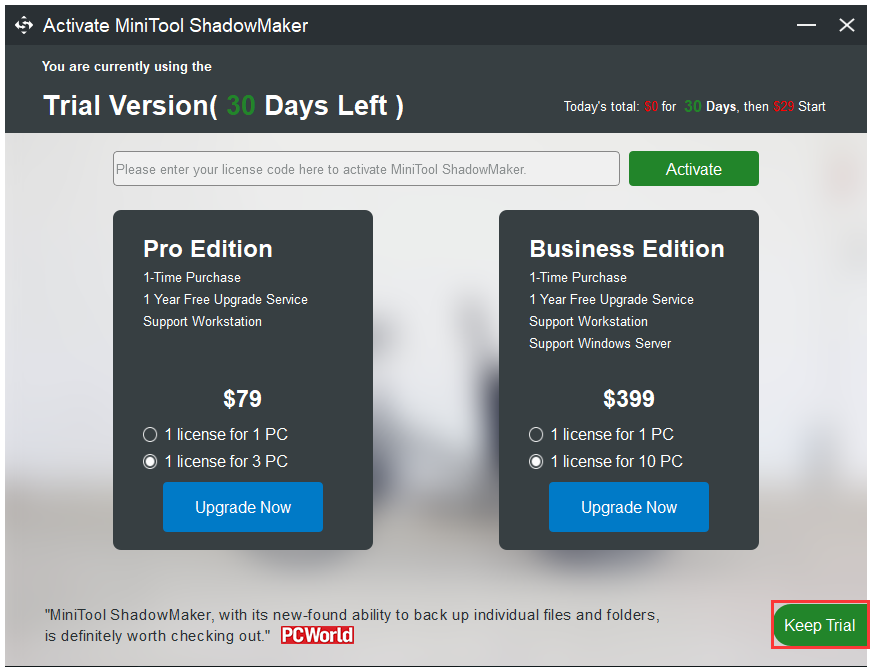
Step 2. Immediately you are led to choose which computer to back up. Select This Computer to continue.
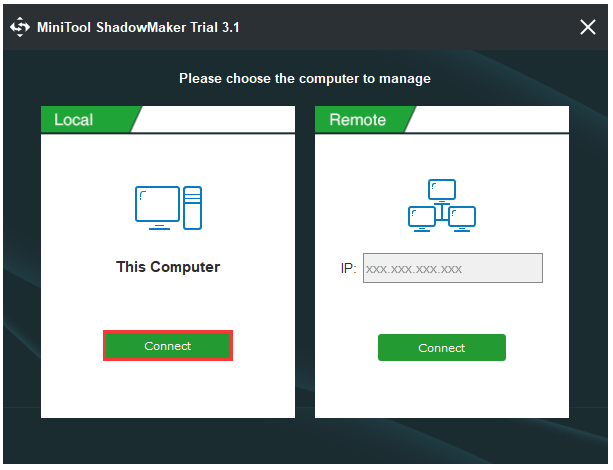
Step 3. Now navigate to Backup tab to select the source partitions and the destination location. Note that the system required partitions are selected by default, so you only need to choose the destination path (an external hard drive location is preferred).
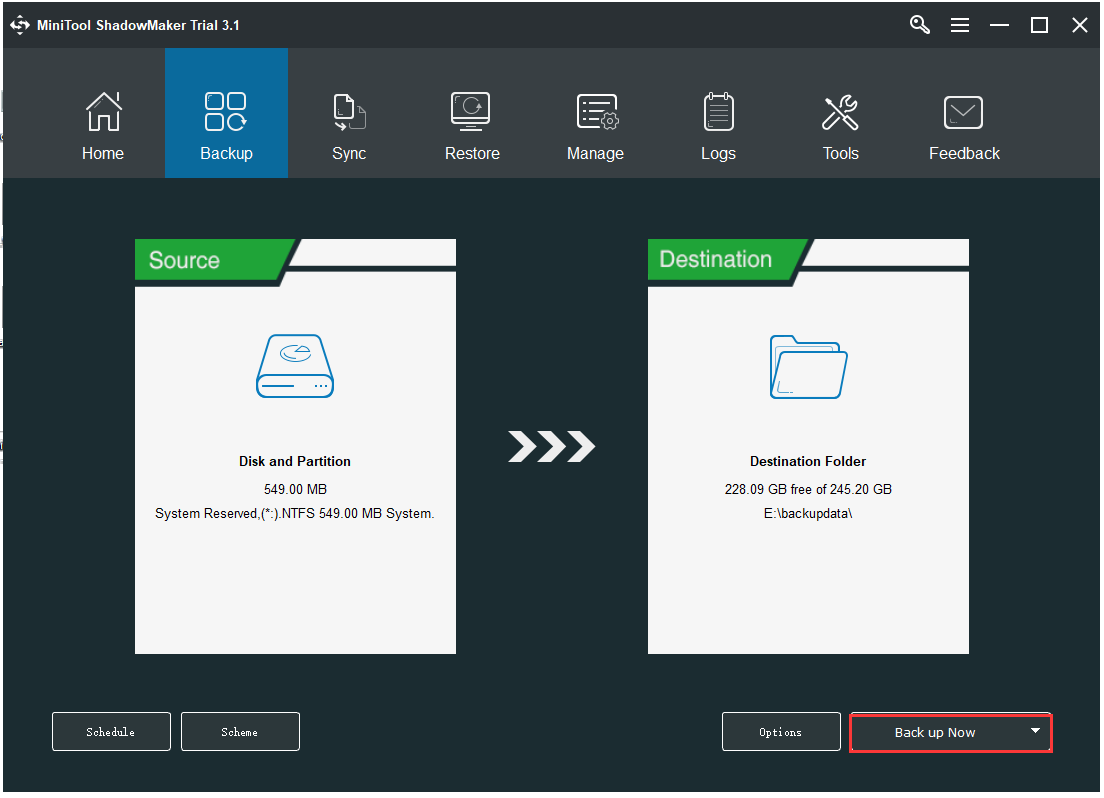
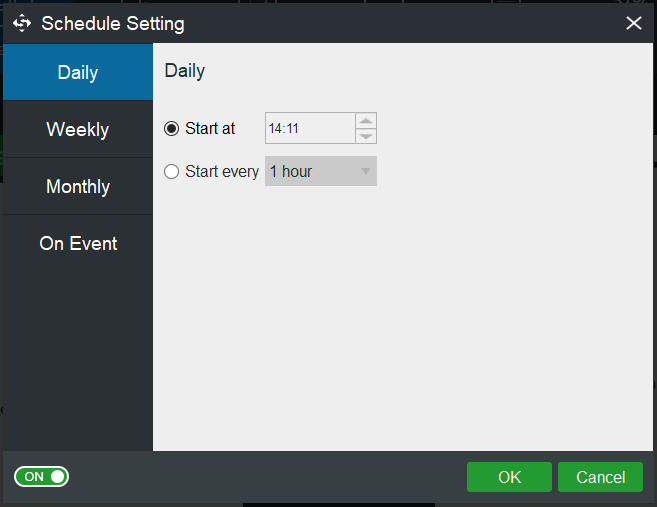
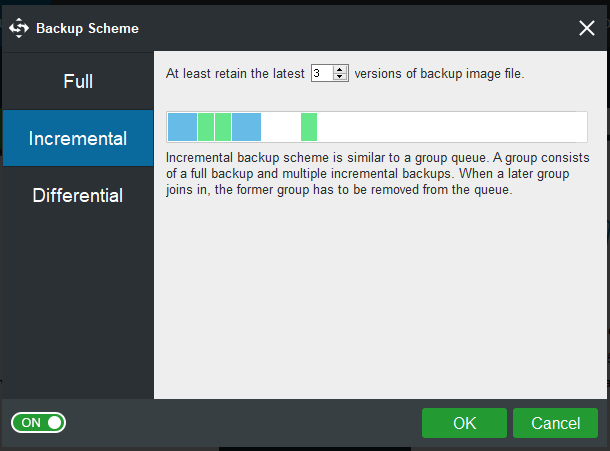
Step 4. Finally, select when to start the backup – Back up Now or Back up Later. Both of them will lead you to the Manage tab, where you can view the backup progress or start the delayed backup task at any time you like.
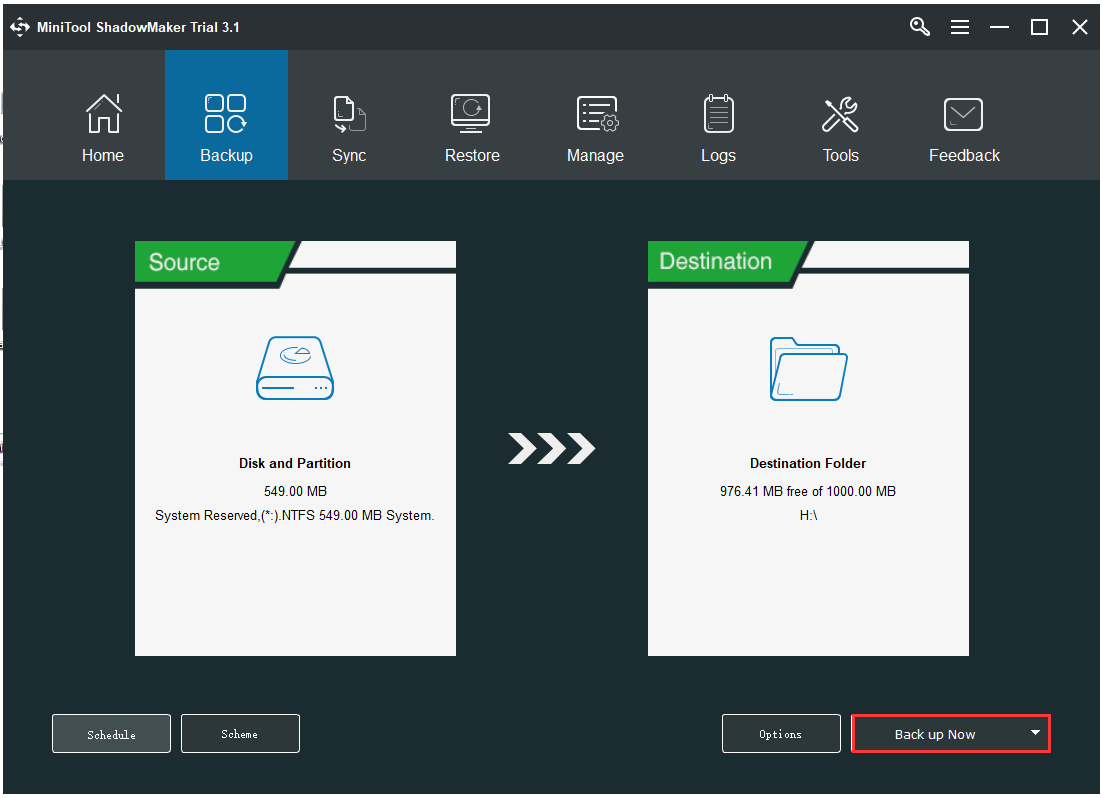
When you see the progress bar goes to 100% in Manage, Windows 7 backup is finished. And you can use the backup image file to restore Windows to an earlier date when an accident occurs.
You may need to know How to Restore System Using MiniTool ShadowMaker?
2. Use Back up and Restore
In fact, you can also use Windows 7 Back up and Restore utility to create a Windows 7 system image backup. Backup and Restore is a component of Microsoft Windows that allows users to create backups and restore from backups created earlier. View How to Back up and Restore Windows 10 for the details.
Way 2: Migrate Windows 7 to Another Drive
A bootable backup means a clone. A clone is a complete copy of your computer’s hard drive, which is especially useful for the boot drive. If your computer’s boot drive died suddenly you can hook up the clone, reboot your computer from it, and have immediate access to not only all of your files but also all of the software you installed, and all of the settings and configuration changes that you have made.
How to Create a Bootable System Backup?
MiniTool Partition Wizard Free Edition is strongly recommended here. As free yet professional disk partition manager, MiniTool Partition Wizard is capable of doing a complete clone of a hard drive, including the system drive. Hence, your computer is able to boot from the target disk if it is a copy of Windows 7/8/10 system disk. Download this free partition magic and learn how to back up Windows 10/8/7 now!
MiniTool Partition Wizard FreeClick to Download100%Clean & Safe
Step-by-step guidance is shown below:
Step 1. Run MiniTool Partition Wizard. In the main interface, select Migrate OS to SSD/HD.
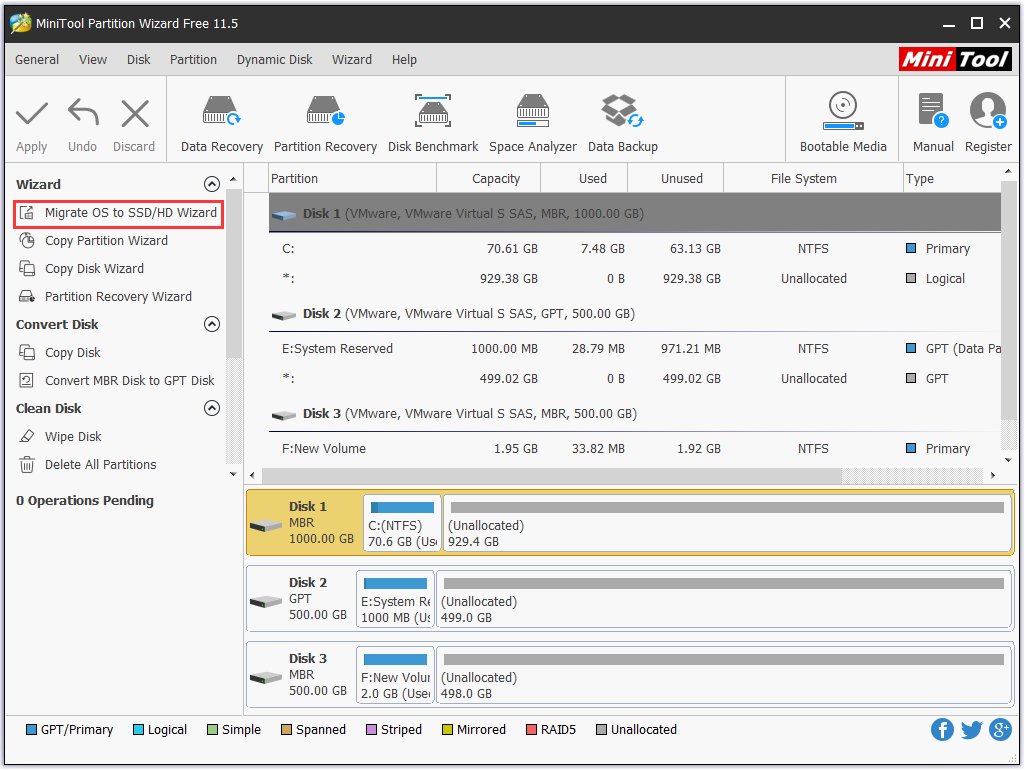
Step 2. Then the Migrate OS to SSD/HD Wizard appears. Here select how do you want to do the migration: to migrate the system only, or to migrate the whole partitions. To back up Windows 7, here we select Option B to continue.
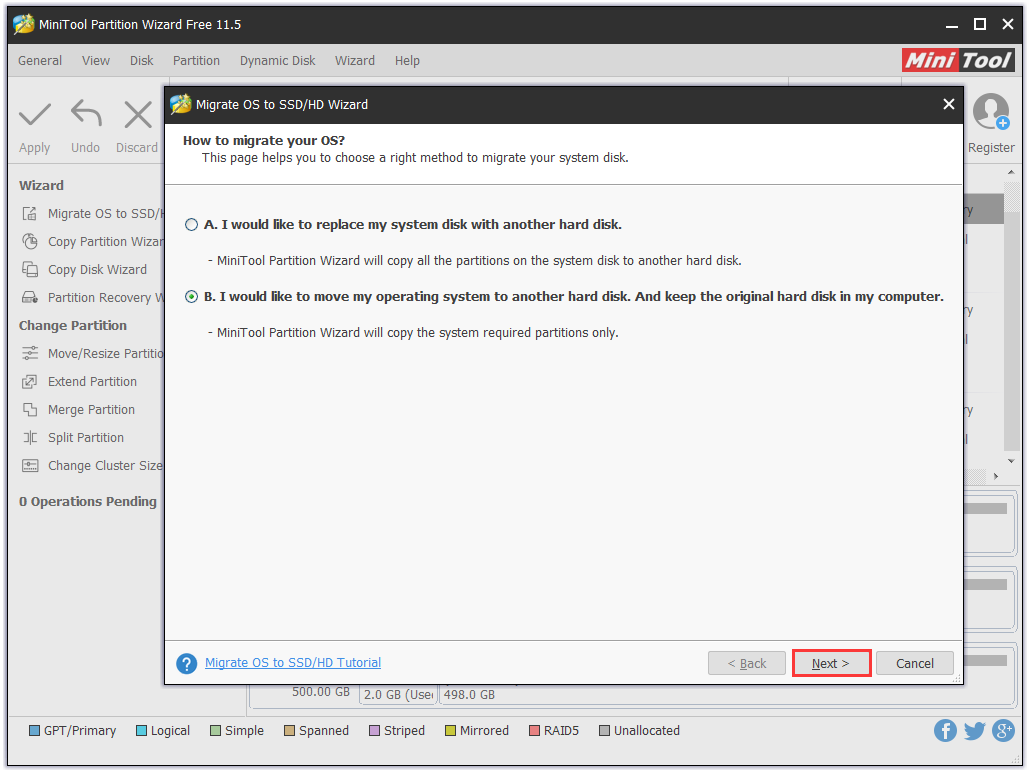
Step 3. Here select a disk to migrate OS to and continue. Note that all data on the target disk will be deleted, so a disk backup may be necessary if it contains important data.
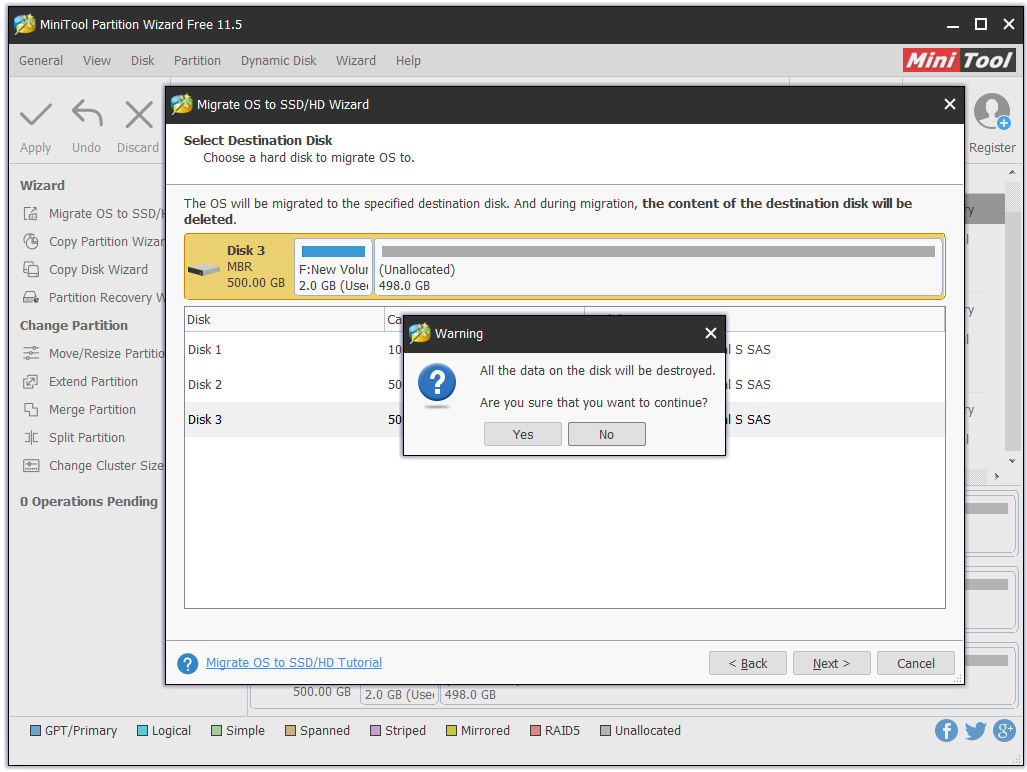
Step 4. Select a copy option and then click Next to go on.
- Fit partitions to entire disk will occupy all the target disk space.
- Copy partitions without resize will keep the original partition size, so the target disk size should be no less than the source disk.
- Align partitions to 1MB will improve the performance for advanced format disk and SSD.
- Use GUID partition table for the target disk if it is larger than 2TB. However, this is a paid feature that is available in the advanced editions (view edition comparison).
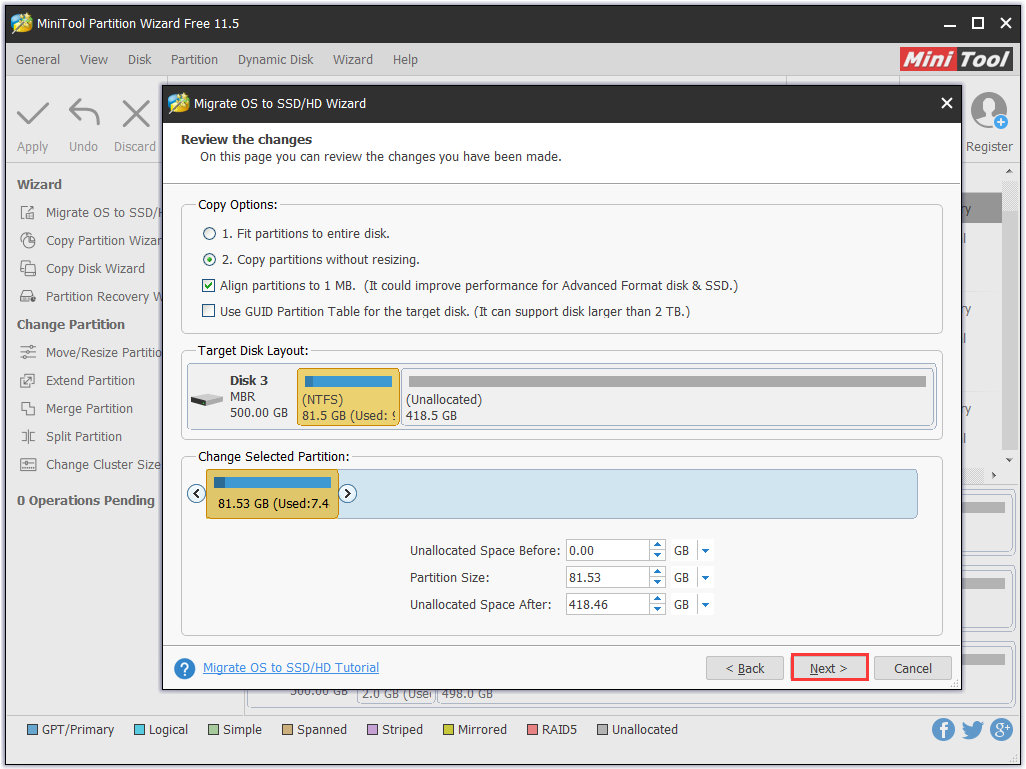
Step 5. MiniTool Partition Wizard will show you how to boot from the destination hard drive, please pay attention to the information. Finally, click Finish button.
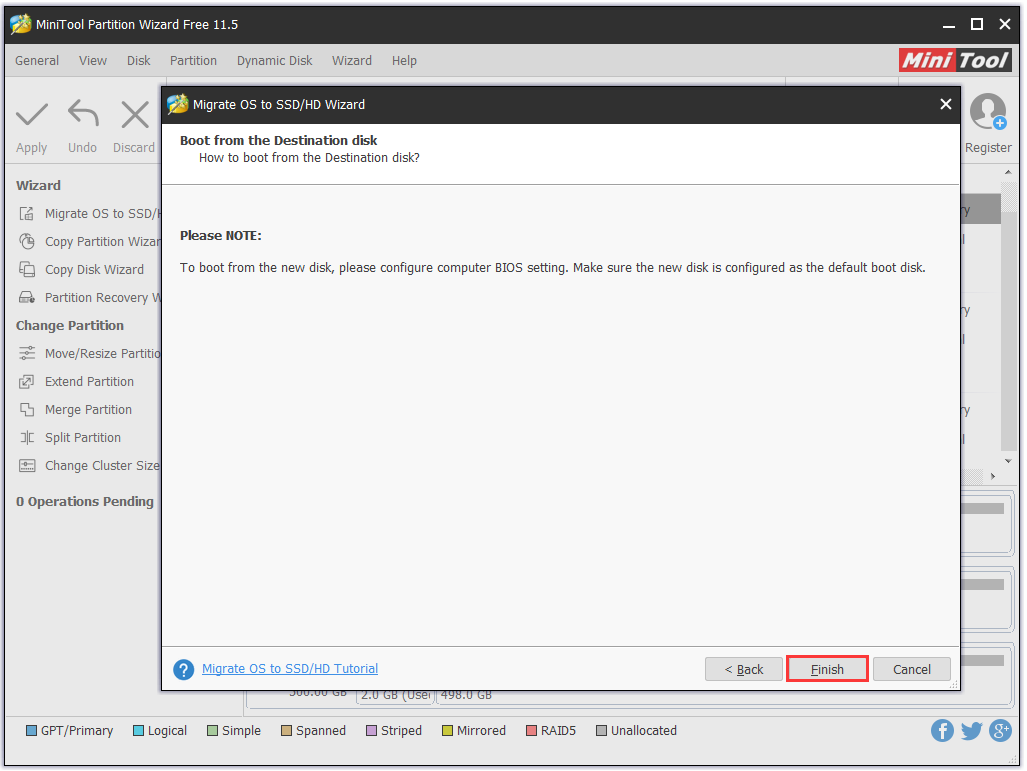
Step 6. Now in the main interface of this software, click Apply to start the system migration. Please note that MiniTool Partition Wizard requires a reboot to finish all operations related to the system.
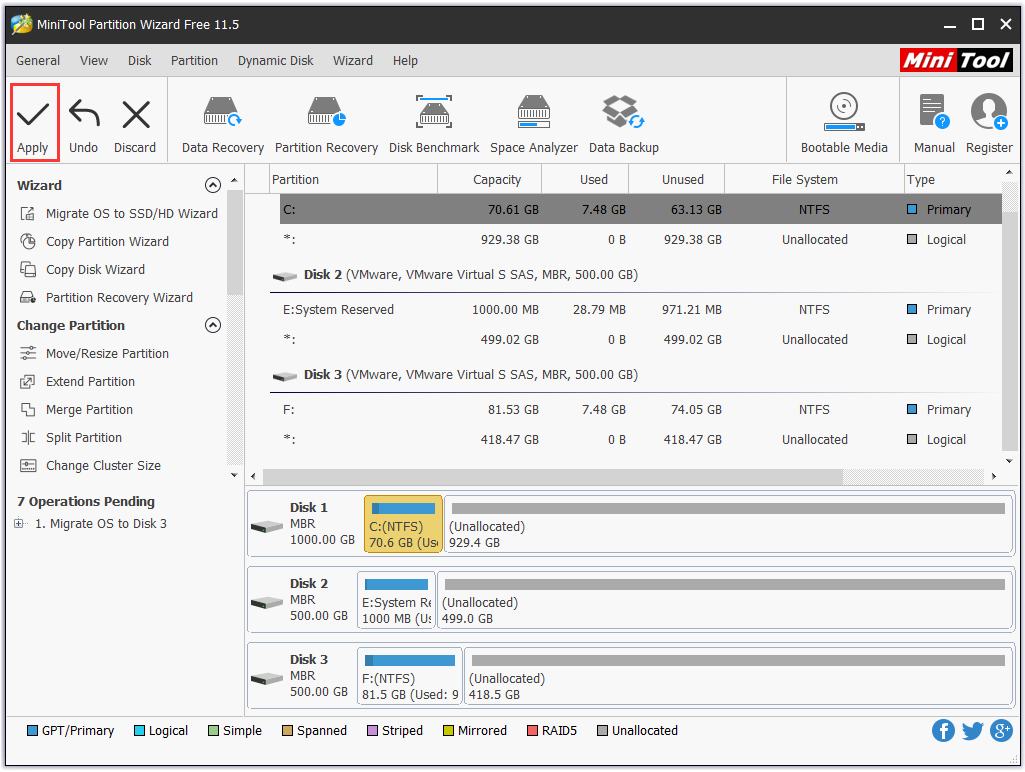
When the migration is finished, your computer will restart and you get one copy of the running system. You can change the boot sequence in BIOS to experience the magic.
Way 3: Clone System Disk in Case of Hard Drive Failure
The 2nd solution we can put forward here is to clone the whole system disk in case that the hard drive may fail some day. Remember all hard drives will eventually fail; it’s just a question of when and whether or not you’ll be prepared. Hence even an outdated clone of your computer is better than no backup at all.
If you are tired of reinstalling the system and recovering the files, a disk clone can really save the day, because you have a copy of all your files as they were when the clone was last updated.
Here are two ways for you to do the clone.
1. Use MiniTool ShadowMaker
We have said that MiniTool ShadowMaker is a backup tool to make a system image for Windows 7/8/10, however, do you know that it can also clone hard drives quickly? Let’s see how it does the job.
Step 1. Run MiniTool ShadowMaker, select This Computer when prompted and then navigate to Tools where you can select Clone Disk.
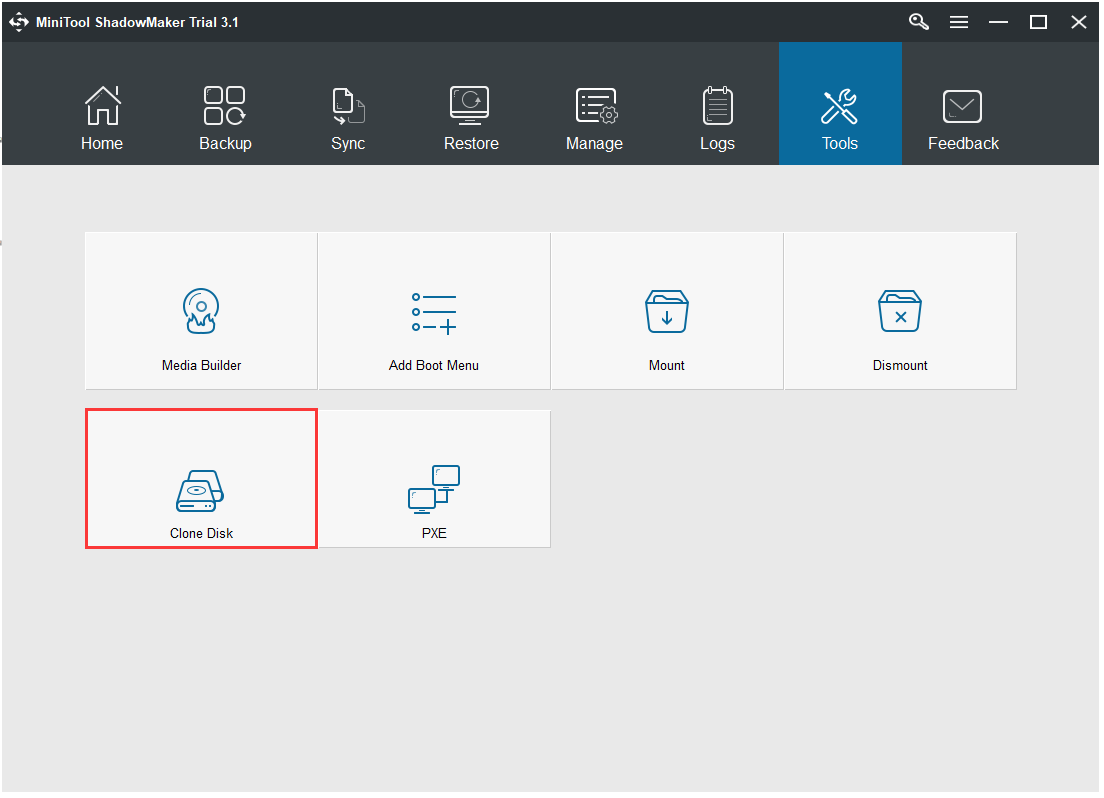
Step 2. Now select which disk to clone and where to save the clone.
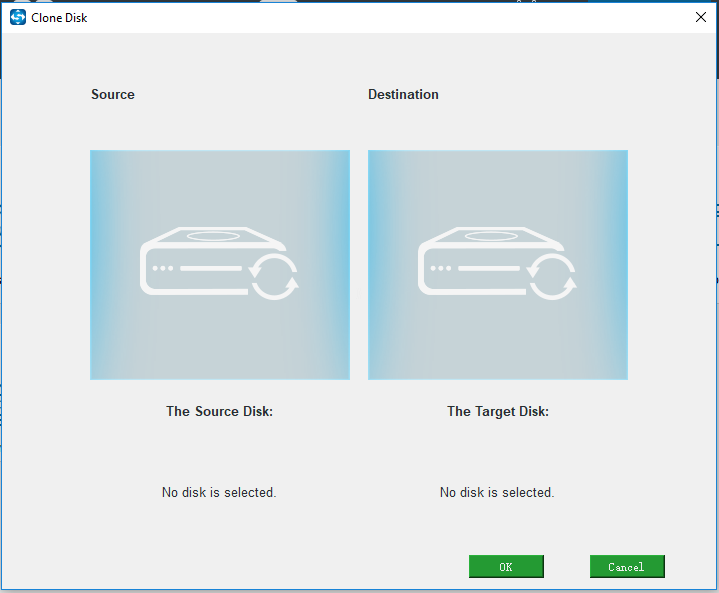
After the selection, MiniTool ShadowMaker will tell you that all data on the target disk will be destroyed. So please make sure you are selecting the right disk.
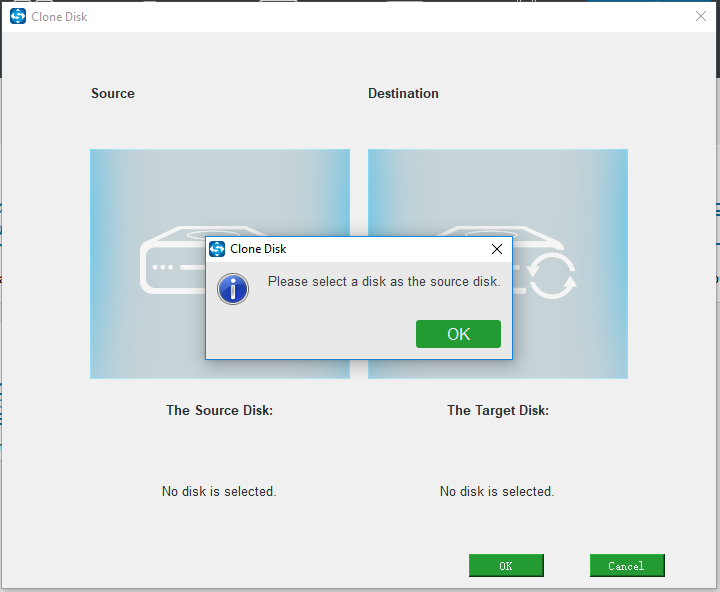
Step 3. When you confirm the disk cloning, the cloning process begins. Please wait patiently until the process is finished successfully.
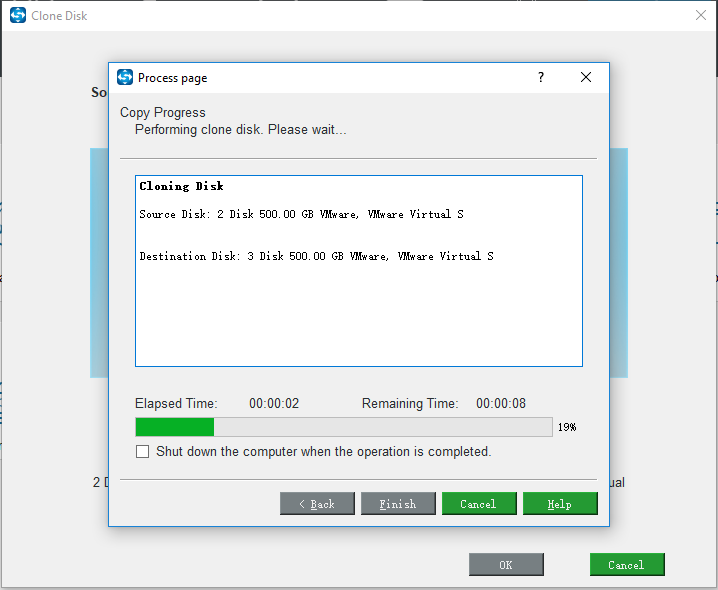
Please note that when the clone is finished, you get two identical disks, and the target disk is marked as Offline by Windows. Now you can cut off the power supply of your computer to take the target disk out. Once you need the backup copy, connect it to your computer for immediate boot.
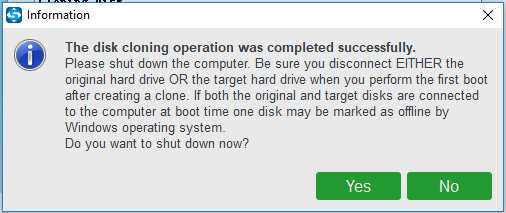
2. Use MiniTool Partition Wizard
Like what we have mentioned in the former part, MiniTool Partition Wizard is professional in disk partition management and offers many useful features to help users back up Windows 7. As to clone hard system drive, its Copy Disk feature is the best choice.
MiniTool ShadowMaker TrialClick to Download100%Clean & Safe
Step 1. Run MiniTool Partition Wizard. Select the system disk and then click Copy Disk feature from the action panel as shown in the following.
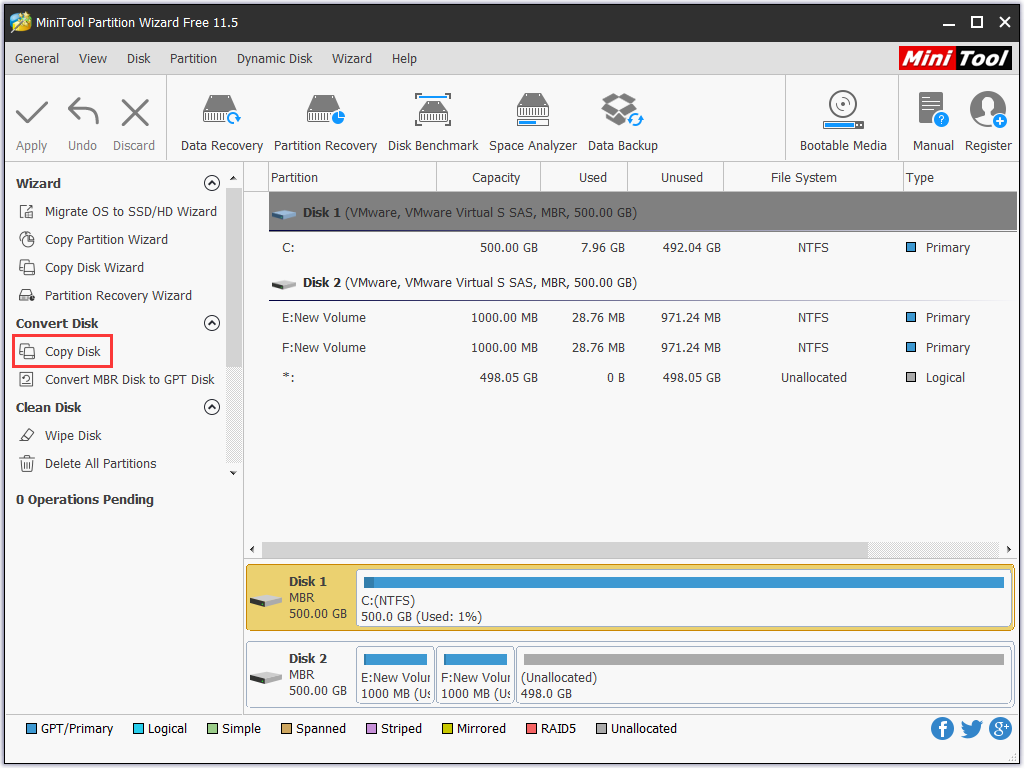
Step 2. Then select a target disk to save the copy. Note that all data on the target disk will be destroyed. Please be careful when selecting the target disk.
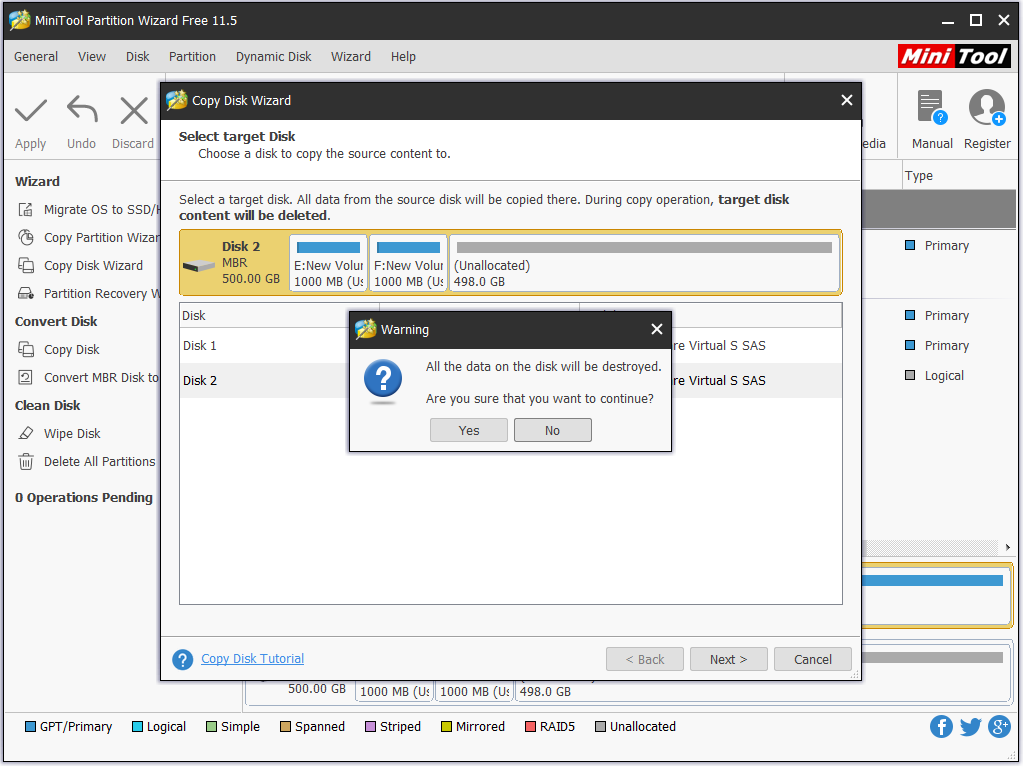
Step 3. In the next page, choose the copy option you prefer and continue.
If you want to cover the full disk space, select Fit partitions to entire disk. If you want to keep the original partition size, select Copy partitions without resize. Then you can select Align partitions to 1MB to improve the performance for advanced format disk and SSD. However, if you want the target disk to employ GUID partition table, you will need to get a personal license.
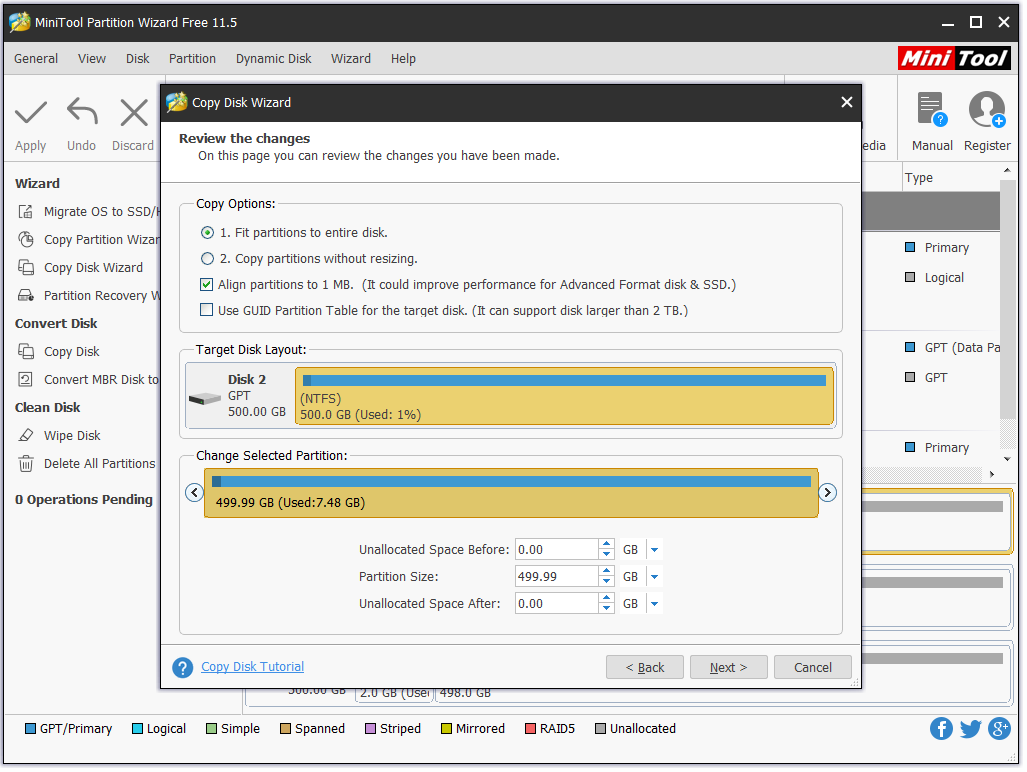
Step 4. MiniTool Partition Wizard will tell you how to boot from the target disk, just pay attention to the information before you click Finish.
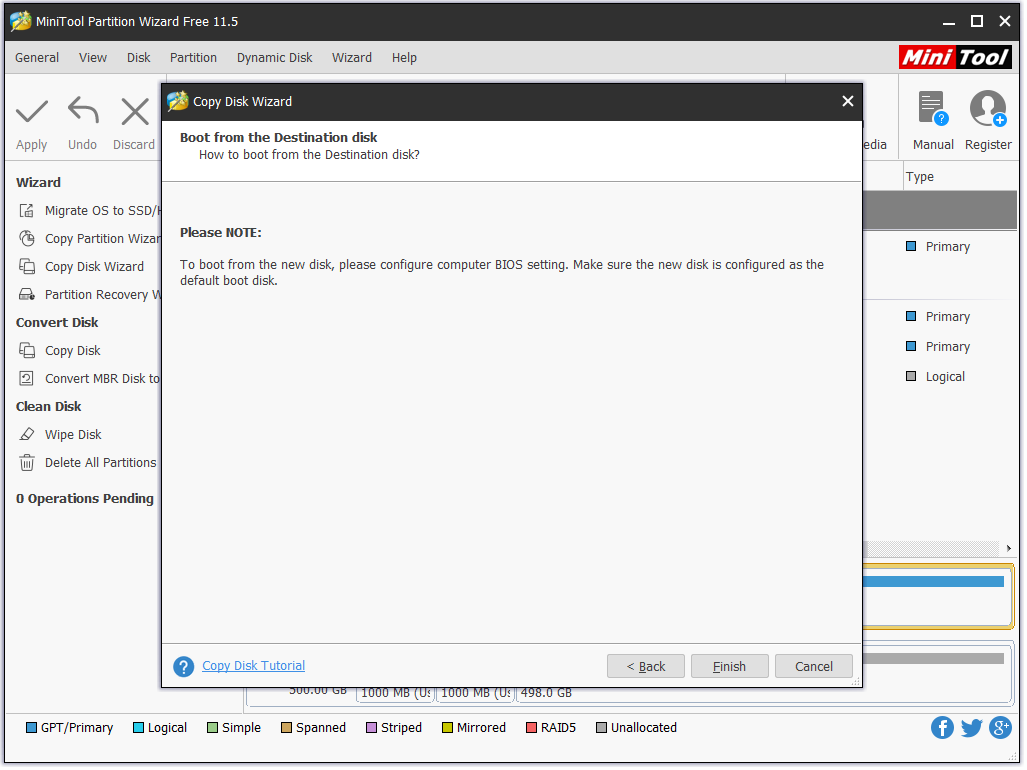
Step 5. And finally, you have come back to the main interface where you can hit Apply to save changes. Again a reboot is required here since this operation deals with the running system.
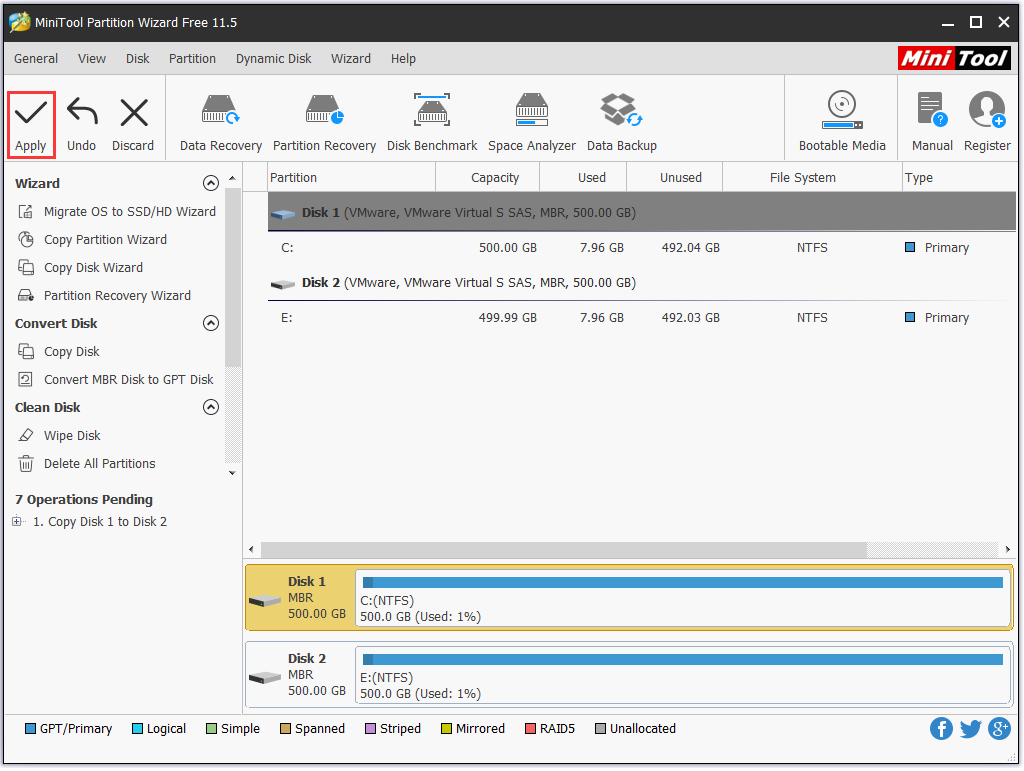
That’s easy, right? Besides, this software is capable of cloning hard drive to SSD. Don’t hesitate to download this free backup software for Windows 10/8/7 to have a try!
Bottom Line
Now you know how to back up Windows 7. Which one do you prefer? Will you use either of the mentioned tools to help you protect your Windows 7/8/10? Now it’s your turn, just do something. Should you have any questions or suggestions towards MiniTool software, welcome to leave us comments below or email us via [email protected].

User Comments :